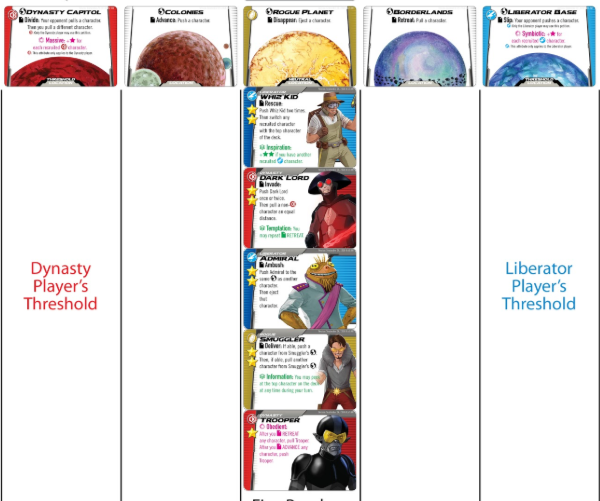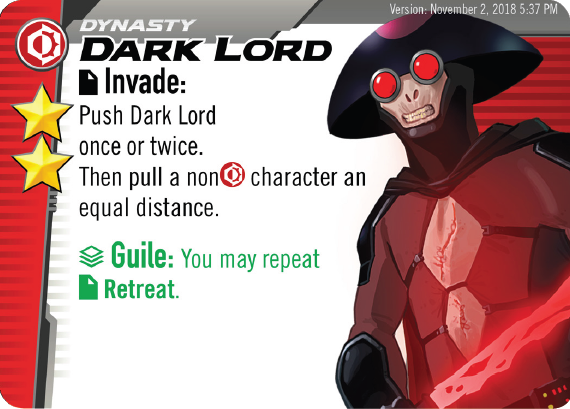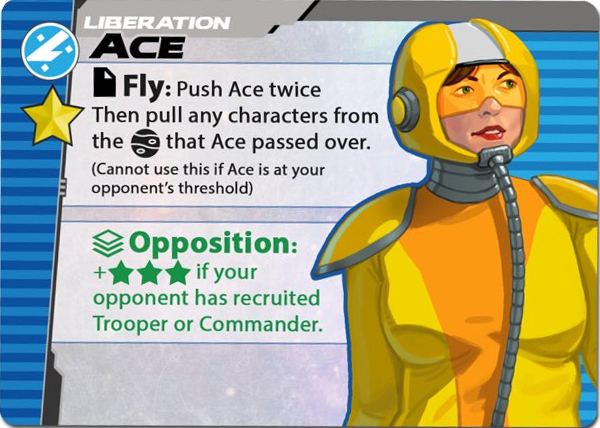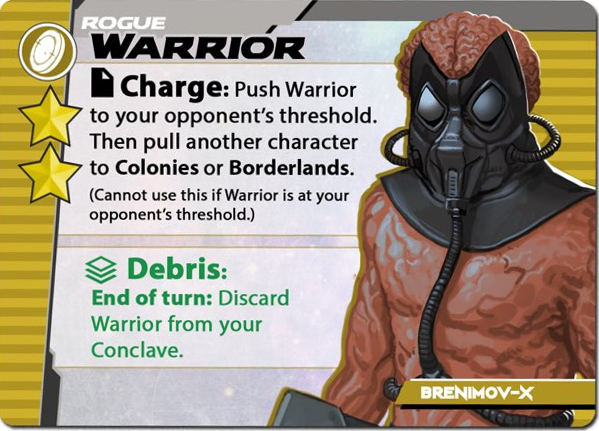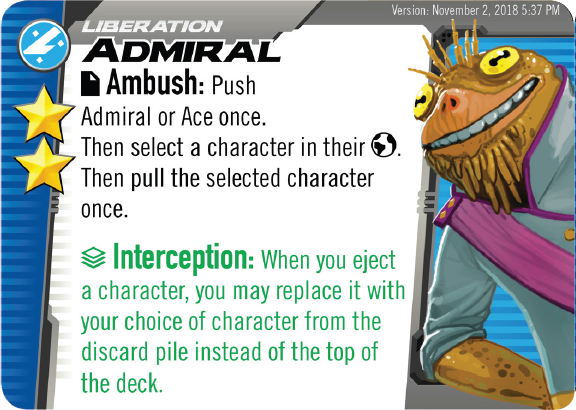When it comes to conventional thought, bigger is usually better. A bigger house, bigger car, bigger paycheck all speak to the allure of affluence. Bigger audiences, bigger platforms, bigger reactions all play into the perceived value of your actions. And the notion of ‘go big or go home’ speaks mountains about how modern society treats the importance of boldness and ambition over anything else.
The world of gaming isn’t immune to this conceptualization either. You see this every time a game releases its 11th expansion or rolls out a completely unnecessary deluxe edition solely because the original wasn’t deemed good enough. You also see this with the belief by some that the more complex, lengthy, and heavier a game gets, the better off it is. To them, the best games are seen as massive and expansive, in part because of the multitude of stuff jammed into its cardboard frame, as anything less than is inferior.
Bigger is always better.
Except…when it isn’t.
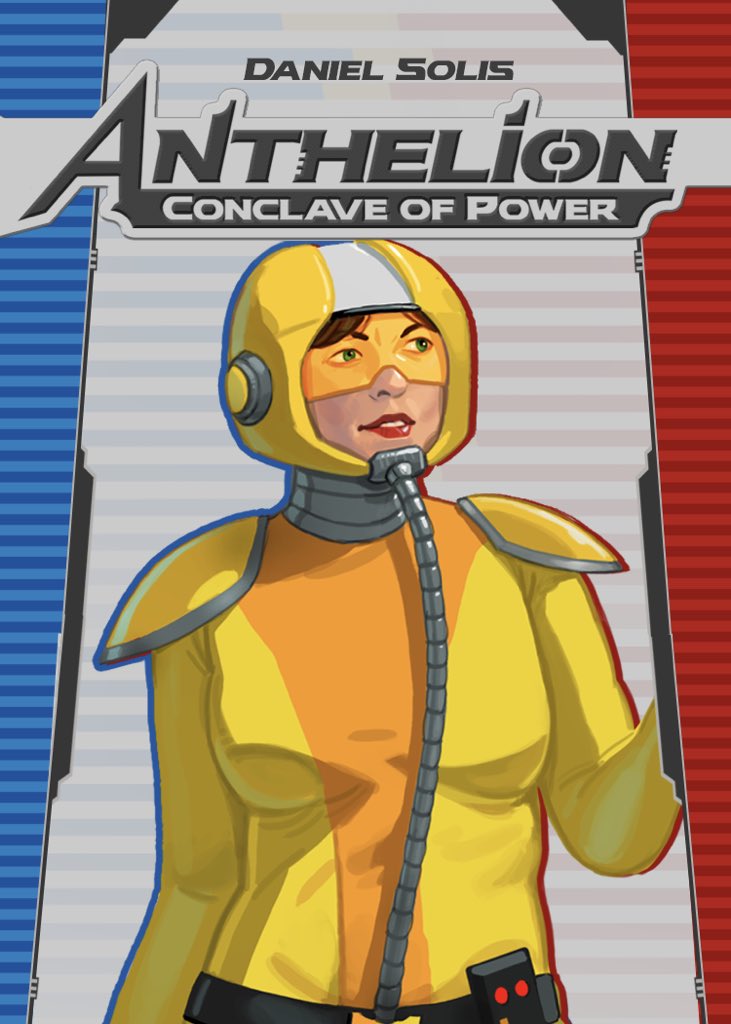 Sometimes a thing is just the right size it needs to be for its true merit to shine, and trying to blow it out of proportion would actually diminish its value. Everyone loves a lollipop when it’s tiny and fits in your hand. They may rethink its appeal if it were instead an eight pound disc of crystallized confectionery you’d have to consume like a horse does a block of salt.
Sometimes a thing is just the right size it needs to be for its true merit to shine, and trying to blow it out of proportion would actually diminish its value. Everyone loves a lollipop when it’s tiny and fits in your hand. They may rethink its appeal if it were instead an eight pound disc of crystallized confectionery you’d have to consume like a horse does a block of salt.
The same also happens to be the case with Anthelion: Conclave of Power. Anthelion is the latest title in the expansive Button Shy catalog, whose Wallet series titles aim to provide a table’s worth of gaming experience in a bite-sized package. And to that end, Anthelion’s trip into the publisher’s sci-fi focused Pocket Universe certainly doesn’t disappoint.
In this brisk twentyish minute tug-of-war style game of tactical-laden attrition, two players command rival factions seeking to build enough of a member coalition to end a costly, stagnated war and take control of the galaxy once and for all.
Each player starts off as the leader of either the Dynasty or Liberation faction, leaders who at this point simply want the war to be over (with them the victor of course), and are trying to recruit whomever they can to their territory’s side to accomplish that. This nebulous offscreen staging area is known as your ‘conclave’. Between your respective conclaves lay the final conflict: a mere five planets, one loyal to each player on the outskirts, two generic planets, and a middle planet belonging to a neutral third faction. The fate of the (pocket) universe will be decided here. And it’ll look like this:
Anthelion begins with five Character cards stationed at the Rogue’s middle planet. Each Character belongs to either the Dynasty or Liberation faction, or to the neutral faction, which in the case of the core Anthelion game are the Rogues. Every Character in the game comes with its own special ability and a Star value, denoting its value as a recruited asset to your cause. Your goal, simple though may it sound, is to move enough Characters into your coalition’s conclave pile to reach 10 Stars. With that achieved, you will have enough consolidated power to emerge victorious.
Now, whether that victory is enacted through principled political reform, high-stakes coup, or imposing Death Star is left to your imagination.
Starting with the Liberation player, each side takes alternating turns. Turns in Anthelion consist of taking two non-identical actions, called petitions. Every Character and planet in the game comes with a petition, which typically involves some variation of pushing Characters a number of spaces towards your opponent, pulling Characters towards yourself, or removing (ejecting) a Character from the board and replacing it with another from the deck.
Demonstrating how desperate the stakes have become in this endless war, however, you are not limited to using petitions of your own faction. Any planet or Character petition can be activated by either player, with the exception of the petition on the planet closest to their faction. These locations still have a sense of loyalty to their side and will only let their respective faction use its petition power.
These planets also have the distinction of being ‘threshold’ locations, as it is the last space on the board; if an action moves a Character off the board, it enters that side’s conclave pile to be counted towards scoring.
Adding Characters to your conclave is essential towards building up the necessary number of Stars to win, but some recruited Characters bestow additional powers which can be further used to your advantage over the duration of the game. Likewise, a handful of Characters and planets have passive ongoing abilities, such as your threshold planets providing an additional Star whenever a Character of your starting faction is recruited into your rag-tag conclave coalition.
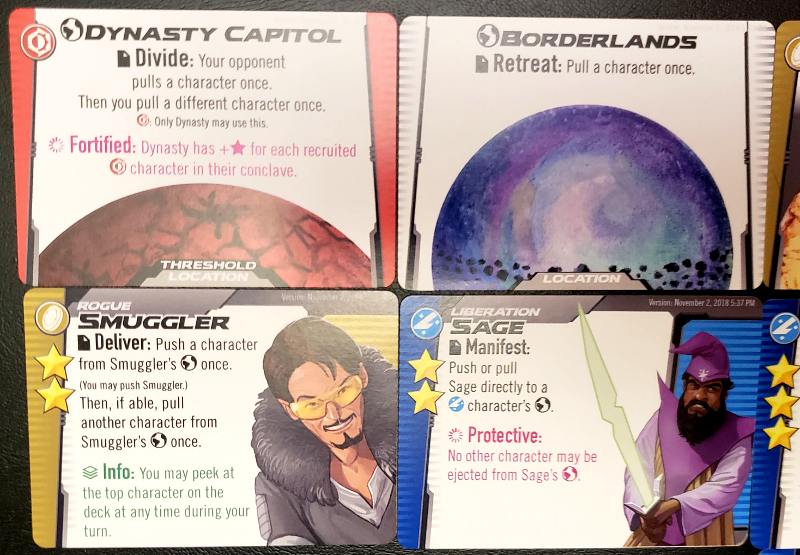
Action 1: Use Sage’s Manifest to pull Smuggler to Borderlands.
Action 2: Use Borderlands Retreat to pull it towards your conclave.
Prototype Shown
Anthelion is also taking a slightly different approach than many of Button Shy’s previous games in that it plans on rolling out additional content for it on a regular basis, opening up the possibilities of a wider pocket universe. And this was decided upon from the game’s very inception.
Elements of Anthelion were clearly inspired by one of Button Shy’s earlier successes, Avignon. Yet while Anthelion is closer to a spiritual successor than a reimplementation, the game did take some lessons learned from its predecessor to heart. Specifically, the advantage that can come of factoring in the potential for future content ahead of time. Aside from the praiseworthy gameplay itself, the desire to create painless expansion material that avoids complexity creep while also fitting into the larger flavor of the game may be Anthelion’s most laudable trait. (Think Sentinels, but on a much, much, smaller scale.)
The initial intent for Anthelion is to release a new five-card min-expansion quarterly, where the five cards of the game’s neutral faction can be swapped out for another. This drastically extends the general lifespan of the game by offering up new strategic experiences, has the ability to opens up players to experience all manner of new inhabitants of this pint-sized universe, and does so without bloating the game with a bevy of unnecessary rules and concepts to understand. In this way, the game never expands beyond its original size but can be continually refreshed with new and different challenges in a two player test of skill and mettle.
Yet none of this would be worth mentioning if it weren’t for how well Anthelion works right out of the warp gate. Over the course of the game, Characters will be moved, removed, tossed around, and generally shoved in all manner of direction with the express intent of either getting them into your conclave or preventing them from reaching your opponent.
Through this Anthelion demonstrates just how remarkably clean and balanced the game is, not only between the power and styles of the different factions, but also from the gameplay itself. With Anthelion, denial tactics are every bit a useful tool as being aggressive, and it will take a mix of both to emerge the winner here. You are routinely forced to make surprisingly challenging decisions over how to spend your two actions, giving this little microverse much more tactical depth than you would expect for a game of just 18 cards.
Indeed, there is a surprising amount of strategy and thought that goes into playing this game, and it won’t take long to realize this. Anthelion makes you feel the consequence of every action taken and every maneuver made. Each move is one step closer (often literally) to securing victory, but progress is tenuous and can just as easily be snatched away by a cunning foe. Which is precisely what you want in a game of this style. With an incredible amount of tactical potential, concise rules, wonderful and inclusive artwork, and the potential for copious replayabilty thanks to interchangeable factions over time, Anthelion is proof that sometimes, if you want to be successful, don’t go big: go small.
If you’d like to petition the publisher for a chance at Anthelion, you can do so right now over on its Kickstarter!
Photo Credits: Anthelion cover and artwork by Button Shy Games.

